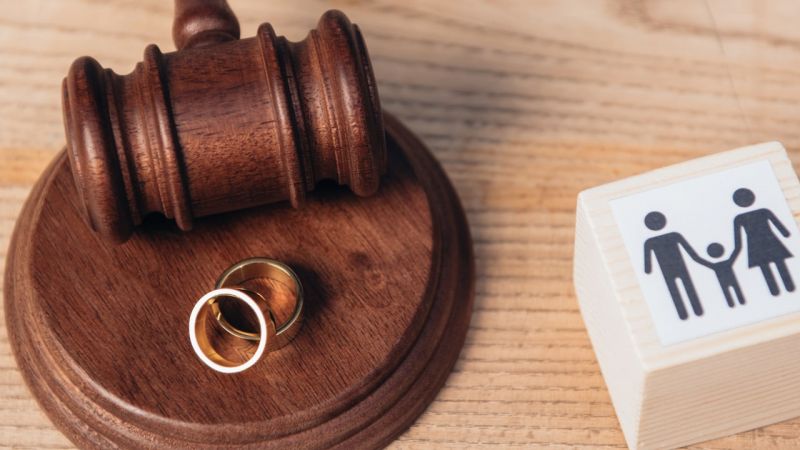Child Representation In Family Law

Table of Contents

Table of Contents
One of the most complicated and emotionally-fraught aspects of a divorce is child custody litigation. Illinois now addresses these under the framework of “allocation of parental responsibilities,” specifically “allocation of decision-making” (previously termed “custody”) and “allocation of parenting time” (previously termed “visitation”).
When this type of litigation becomes contested, whether in a divorce or in a parentage proceeding (a case in which the parents of the child were not married), the Court may appoint an attorney to represent the best interests of the child. It is important for any family litigant to understand the role these lawyers play in the proceedings.
Appointing a Representative for a Child in Divorce
The Court’s overarching concern in litigation involving children is the “best interests of the child.” Unsurprisingly, in a divorce or parentage dispute, the parties may disagree as to what is in the best interests of their child. Further, there is often significant history between the parties and boundless facts, incidents, and opinions between the parties relating to parenting. However, the person ultimately tasked with determining the outcome of the case – the judge – has the least amount of information and lacks direct access to such material.
Accordingly, in the event that the parties cannot come to an agreement, if the Court has concerned about the level of candor from the parties, or if there is a concern that a child’s well-being is not being appropriate protected, the Court will appoint an attorney to represent the children’s interests.
The Court can appoint an individual in the following capacities: (1) Attorney for the Child, (2) Guardian ad Litem, or (3) Child Representative. Appointments in the capacity of Attorney for the Child – in which the direct wishes of the child, versus the child’s best interests, are advance – are so infrequent that we will not discuss that here.
In addition to representing the best interests of the minor child in litigation, a Child Representative or Guardian ad Litem is tasked with determining what services, if any, the child and family needs to better help address parenting issues, ascertaining whether settlement is feasible, and attempting to resolve disputes in a manner that advances the best interests of the minor child.
Guardian ad Litem vs. Child Representative
There are several key differences between the role of Guardian ad Litem and Child Representative, although both represent the best interests of the child.
A Guardian ad Litem is acts as the “eyes and the ears of the Court” and is considered a witness. The Guardian ad Litem conducts an investigation, and makes recommendations that they believe are in the child’s best interests. There is no confidentiality between the child and the Guardian ad Litem, and a Guardian ad Litem may disclose what they learn through conversations with the child (and any other interviewees). Unless otherwise directed by the Court, these recommendations are reduced to writing in a report tendered in advance of trial. As a witness, a Guardian ad Litem can be deposed and will testify at trial.
In addition to being a witness, a Guardian ad Litem can also be present for all court proceedings, issue subpoenas for records, and file procedural pleadings (such as a Motion to Set Hearing/Trial Dates or a Motion to Compel). In that capacity, they have similar rights as an attorney.
By contrast, a Child Representative is advocates for the best interests of the child using evidence-based legal arguments. The Child Representative does not make recommendations, write a report, or testify. A Child Representative can question witnesses, present evidence, and make legal arguments. This is similar to how an attorney for a party participates in litigation.
A Child Representative can take a position in the case that considers the expressed wishes of the child, but they are not bound by them. This is a key difference between a Child Representative and an attorney.
The Child Representative has the same investigative powers as a Guardian ad Litem, such the right to speak to the parties and the child and to collect evidence.
Whether the Court appoints a Child Representative or Guardian ad Litem depends on several factors, including the child’s age and maturity, whether the Court needs assistance in gathering and receiving information (in which case a Guardian ad Litem may be preferable), and the issues before the Court.
Who Pays for a Child Representative or Guardian ad Litem?
The parties share the cost of a Child Representative or Guardian ad Litem. When an attorney is appointed in this capacity, the Court will require the parties to pay a retainer. This can be done on an equal (50/50 basis), in proportion to the parties’ respective incomes, or paid from the marital estate.
The Child Representative or Guardian ad Litem is required to issue invoices every 90 days during the course of the case. If invoices remain unpaid, they can seek approval and payment of the fees through the Court. The Court will approve fees that are reasonably required and necessary to the case.
How Can I Prepare for A Child Representative or Guardian ad Litem in My Case?
A Child Representative or Guardian ad Litem will conduct an investigation to ascertain the best interests of the minor child. This typically begins with obtaining information through a questionnaire, followed by an interview of each party. Information gleaned at this stage usually includes background about the history of the parties’ relationship, history of caretaking of the minor child, whether there are any special considerations regarding the child (for example, complex medical needs or diagnoses, or special needs related to education), whether there are domestic violence and/or substance abuse concerns, the child’s interests and activities, and both parties’ desired outcome.
An attorney appointed to represent a child in a divorce or parentage proceeding is also required to interview the child as soon as practicable. This usually, but not always, happens after an initial meeting with the parents. If the child is too young to be interviewed, this obligation can be satisfied through observing the child. The meeting with the child may occur in the Child Representative/Guardian ad Litem’s office, over Zoom (particularly in cases with older children or if there is considerable distance), at a parent’s home, or in a neutral location. While Child Representatives or Guardian ad Litem’s are not always required to do a home visit, it is common for the child to be observed in each party’s residence to help ascertain relevant information such as rapport between the child and members of the household, to determine the appropriateness of the living environment, and to help obtain information in a setting where the child may be more comfortable.
Additionally, parents should be prepared to give the Child Representative or Guardian ad Litem a list of collateral contacts who can speak to relevant information about the minor child. These individuals may include close family members, new significant others and/or adult residents in the household, care-providers, teachers, healthcare providers, and the like.
Further, parents should gather documentation that demonstrates the history of caretaking of the minor child, concerns they have about the other parent, and describes the needs of the child. This includes, but is not limited to:
- School records, including report cards, attendance records, and communications with educators;
- Medical records;
- Relevant communications with the other parent; and
- Photographs of the child and their environment.
The Child Representative/Guardian ad Litem should be granted access to all relevant information, so parents are advised to sign releases to enable the representative to obtain documents from, and speak to, care providers, as well.
It should be expected that the Child Representative/Guardian ad Litem will have several meetings or interviews with the parents and the child, and continue to receive information throughout the duration of the case.
It is our pleasure and responsibility to make sure that our clients are prepared and successful at all stages of litigation, including protecting client’s rights to a meaningful relationship with their children. If you have questions about the role of a Child Representative or Guardian ad Litem in your case, please do not hesitate to contact me at (312) 408-7000 or by clicking the buttons on this page.

Written By Aurelija Fitzpatrick
Aurelija Fitzpatrick believes that a large part of her job is being a problem solver. She also understands that people are often misunderstood. She has a unique ability to collaborate with family law clients by listening to her client’s concerns, evaluating multiple courses of action, and ensuring that they have the tools they need to be successful and comfortable after litigation ends.
She is also frequently appointed by the Court to serve as a child representative or Guardian Ad Litem, representing children in high-conflict domestic relations matters. In addition, Aurelija is approved to serve as a Parenting Coordinator in Cook County, Illinois—a role that allows her to assist parents in implementing and complying with parenting plans, resolving disputes, and focusing on the best interests of the children.











